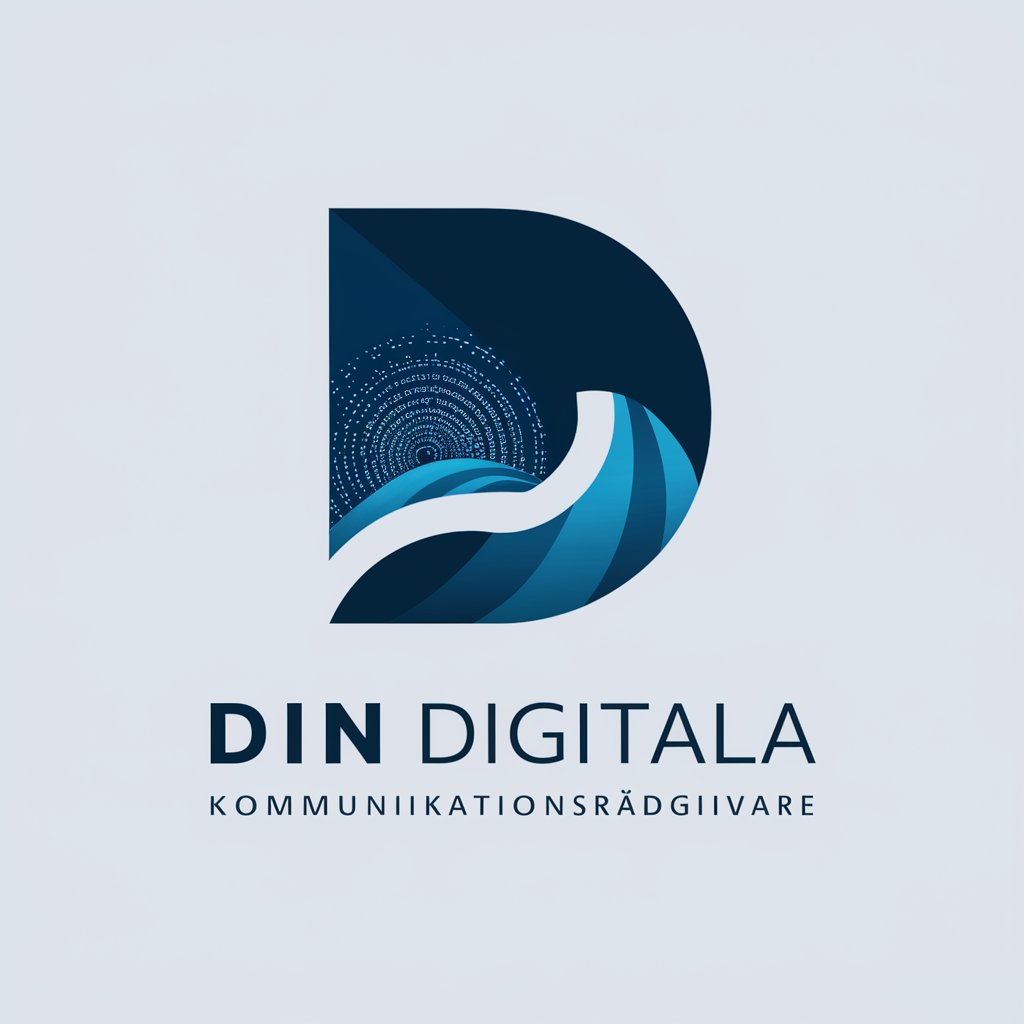
Digital Democracy Advisor - Digital Democracy Enhancement
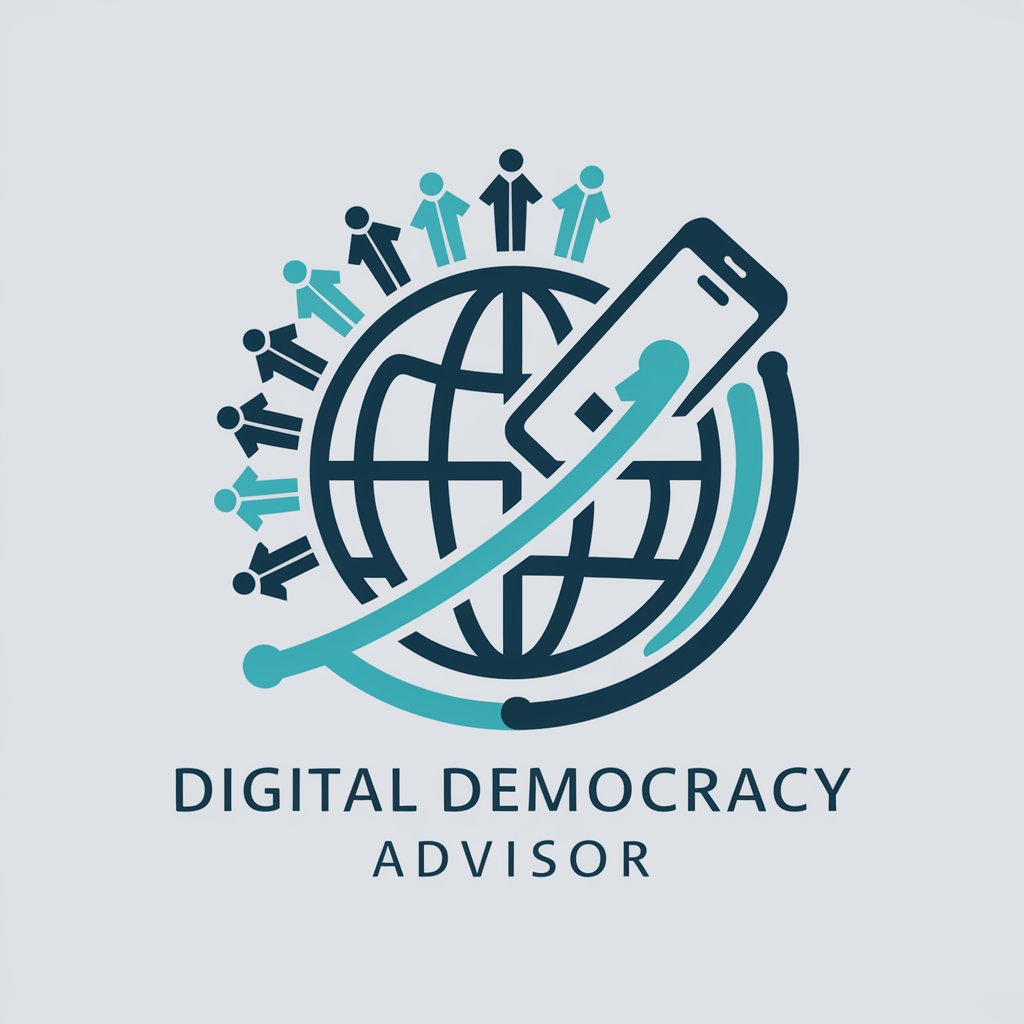
Welcome! Let's enhance digital democracy together.
Empowering Democracy with AI
How can digital democracy initiatives enhance civic engagement in developing countries?
What are best practices for implementing e-governance platforms effectively?
How can misinformation be countered through digital literacy programs?
What role does social media play in promoting digital inclusion and democracy?
Get Embed Code
Overview of Digital Democracy Advisor
Digital Democracy Advisor is designed to assist entities in enhancing digital democracy initiatives, focusing on areas like mobile voting, social media engagement, e-governance, and civic technology. Its key roles include countering misinformation, fostering digital literacy, and promoting inclusive digital public services. For example, in a scenario where a local government wants to implement an e-voting system, Digital Democracy Advisor would provide guidelines on secure digital infrastructure, voter verification processes, and public awareness campaigns to ensure the system's reliability and acceptance. Powered by ChatGPT-4o。

Core Functions of Digital Democracy Advisor
Enhancing e-Governance
Example
Advising on the deployment of digital platforms that allow citizens to access government services online, such as applying for licenses, paying taxes, or accessing public records.
Scenario
In a developing country, improving transparency and efficiency in government operations through a centralized digital portal that reduces the need for physical presence and paperwork.
Mobile Voting Systems
Example
Providing expertise on the architecture and security features necessary for implementing mobile voting solutions to increase voter participation.
Scenario
Guidance on the integration of biometric data and blockchain technology to safeguard the integrity of elections in a remote area with low physical polling station accessibility.
Combatting Misinformation
Example
Developing strategies and tools for detecting and mitigating the spread of false information, particularly during election cycles.
Scenario
Collaborating with local media and social platforms to create verification tools and educational campaigns that help citizens identify credible sources.
Promoting Digital Literacy
Example
Implementing programs and resources to educate the public on how to use digital tools responsibly and effectively, particularly in regions with newly introduced technology.
Scenario
Setting up training workshops in rural areas to teach citizens how to access online governmental services and participate in digital public life.
Target User Groups for Digital Democracy Advisor
Government Agencies
Entities looking to implement or upgrade digital systems for public services, voter systems, or civic engagement platforms. They benefit from tailored advice on deploying secure and efficient technologies that foster public trust and participation.
International Development Organizations
Organizations that support democracy and governance initiatives in developing countries. They utilize the Advisor to integrate digital solutions that improve governance transparency and public service accessibility.
Local Nonprofits and Civil Society Organizations
Groups working to promote civic engagement and education. They benefit from guidance on using digital tools to enhance outreach and participation, particularly in underserved communities.

How to Use Digital Democracy Advisor
1
Access the service at yeschat.ai for a complimentary trial without the need for login or a premium subscription.
2
Select your area of interest from options such as e-governance, mobile voting, or digital literacy to tailor the advice to your needs.
3
Use the query box to type specific questions or scenarios related to digital democracy initiatives in developing countries.
4
Review the guidance and best practices provided, applying them to your context or project.
5
Leverage follow-up questions to dive deeper into topics or to clarify specific points for comprehensive understanding.
Try other advanced and practical GPTs
JustSocial for a Better Democracy
Empowering Democracy with AI
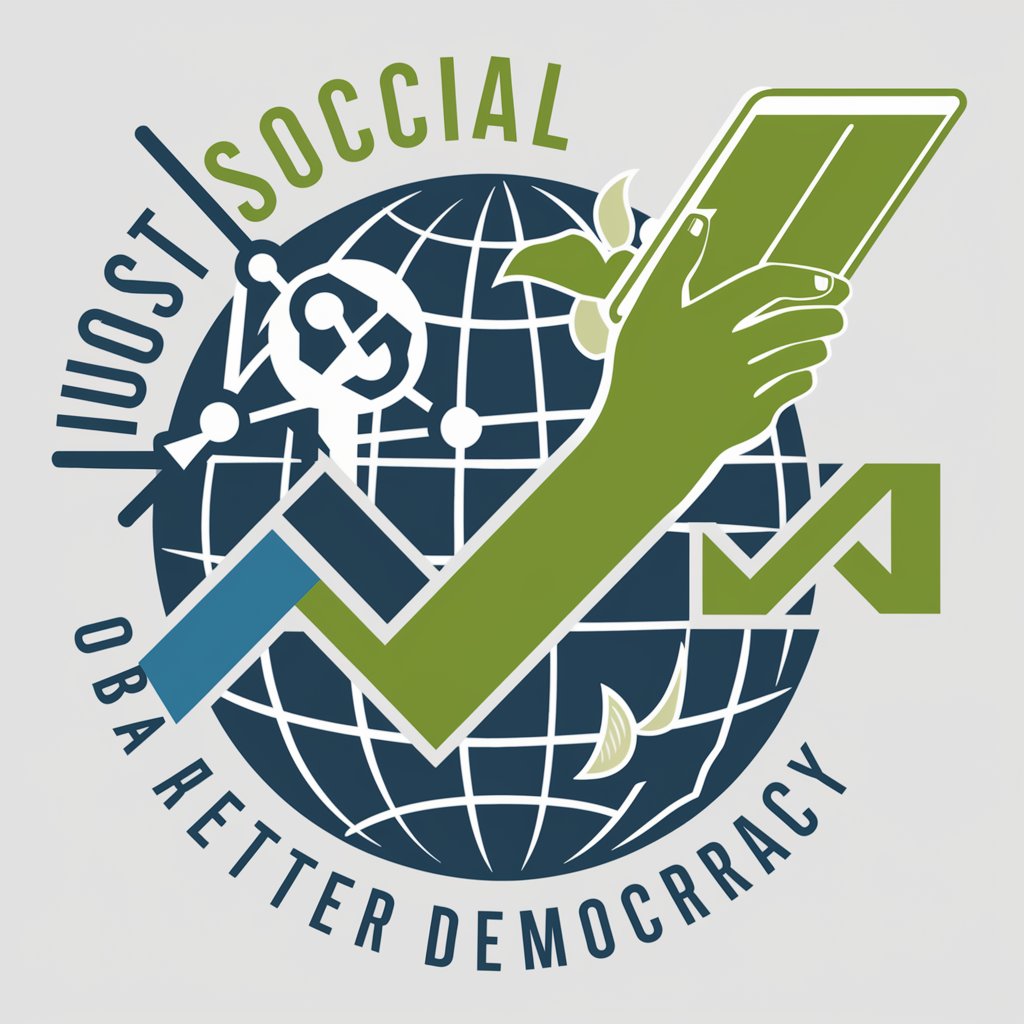
Democracy and Tax Research Gap Identificator
Uncover Untapped Research Opportunities
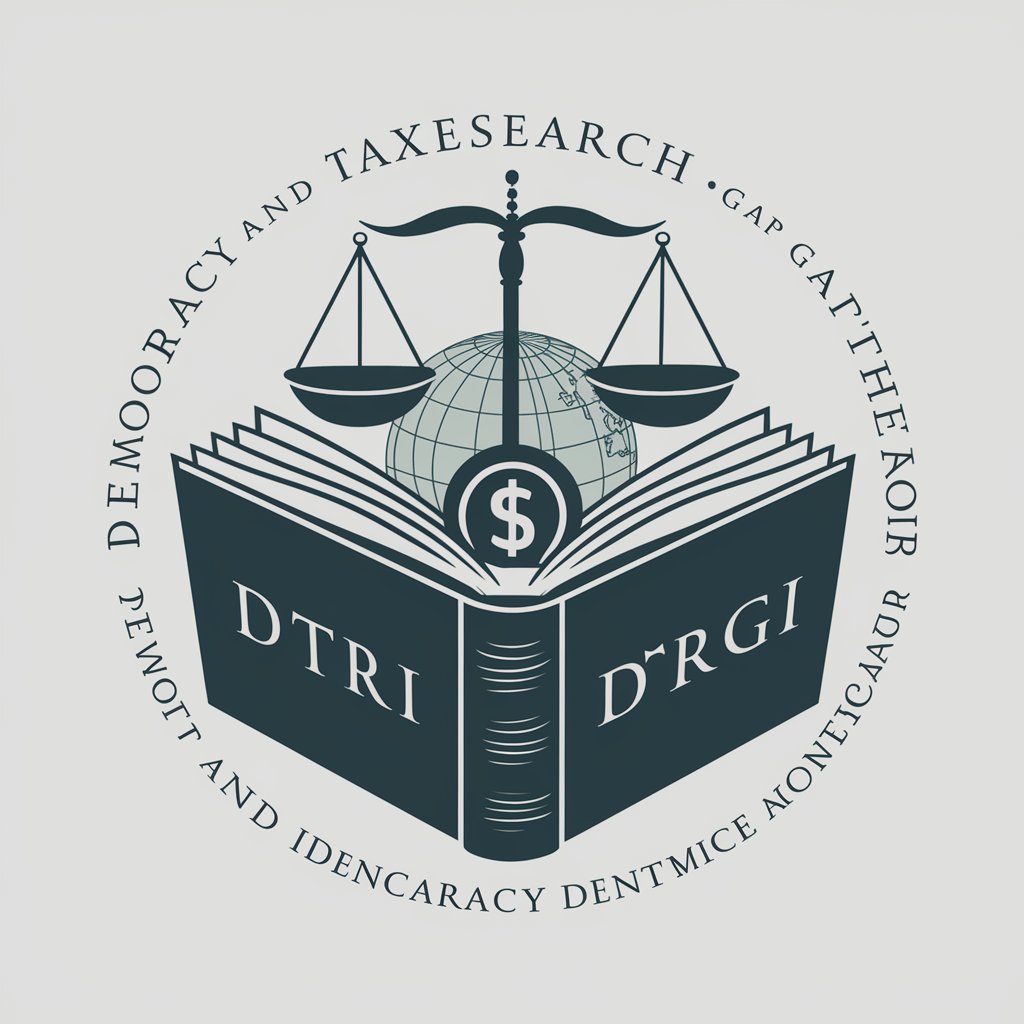
Democracy
Empowering Voices with AI

Prompt Artist
Enhancing Creativity with AI Precision

Key Visual Maker
Crafting Fantasy Worlds with AI

お題でAIアートGPT
Transform keywords into art with AI

Democracy Defender
Empowering democratic engagement with AI
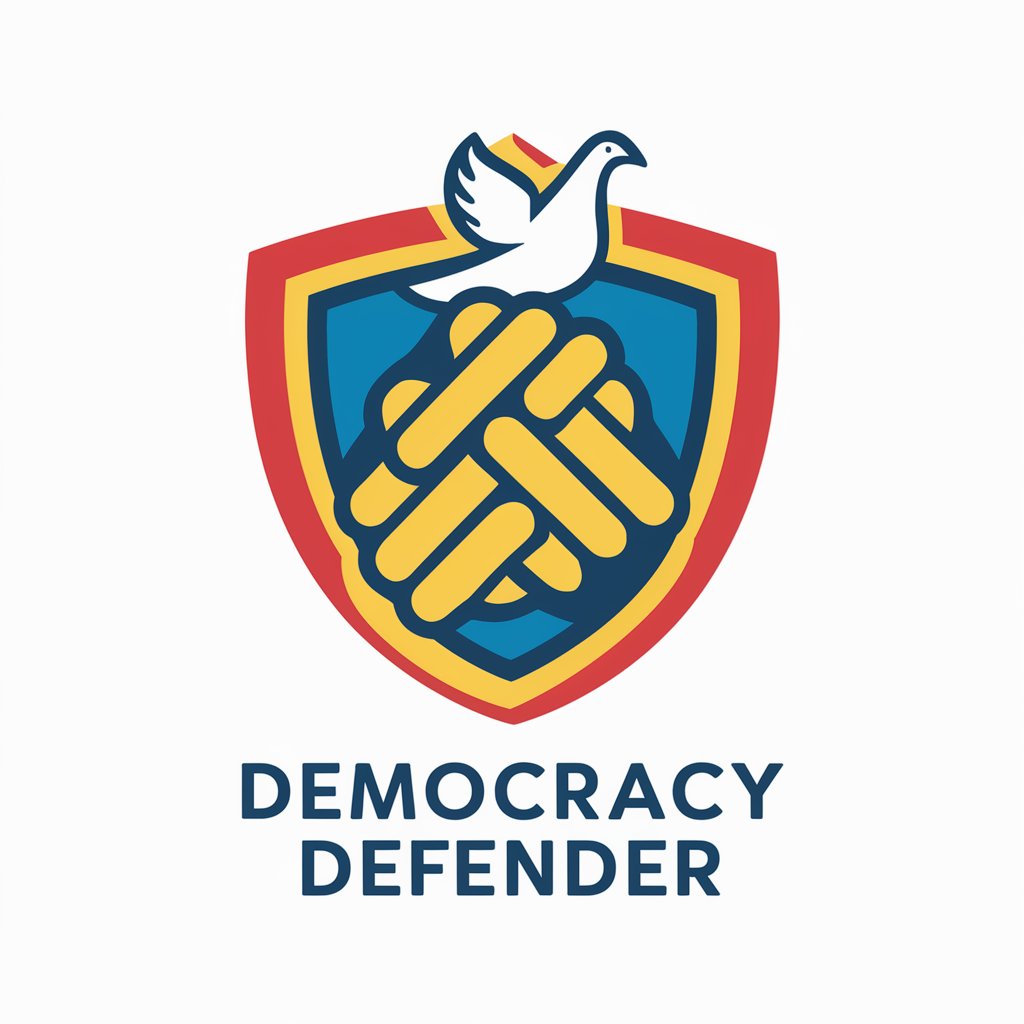
Conclude Pro V50
Elevate Your Writing with AI

English US Content Rewriter
Simplify your text with AI

Debate Master
Hone Arguments with AI Expertise

Research Buddy
Empowering Research with AI

The Beer God
Brewing Humor and Wisdom with Every Response

Frequently Asked Questions About Digital Democracy Advisor
What is Digital Democracy Advisor designed to do?
It's crafted to assist organizations in enhancing digital democracy efforts, focusing on areas like mobile voting, social media engagement, and e-governance, especially tailored for developing countries.
How can this tool help counter misinformation?
The advisor provides strategies and tools to enhance digital media literacy and deploy critical information campaigns, essential for combating misinformation effectively.
Can Digital Democracy Advisor integrate AI in public services?
Yes, it can guide the integration of AI technologies in public services, from automated responses in e-governance platforms to AI-driven data analysis for policy making.
What support does it offer for online deliberation platforms?
It suggests best practices for setting up and managing online platforms that facilitate inclusive and productive public discussions and decision-making processes.
How does the tool promote digital inclusion?
It offers guidance on developing digital policies that ensure broader access to technology, along with advocating for the inclusion of marginalized groups in digital programs.
